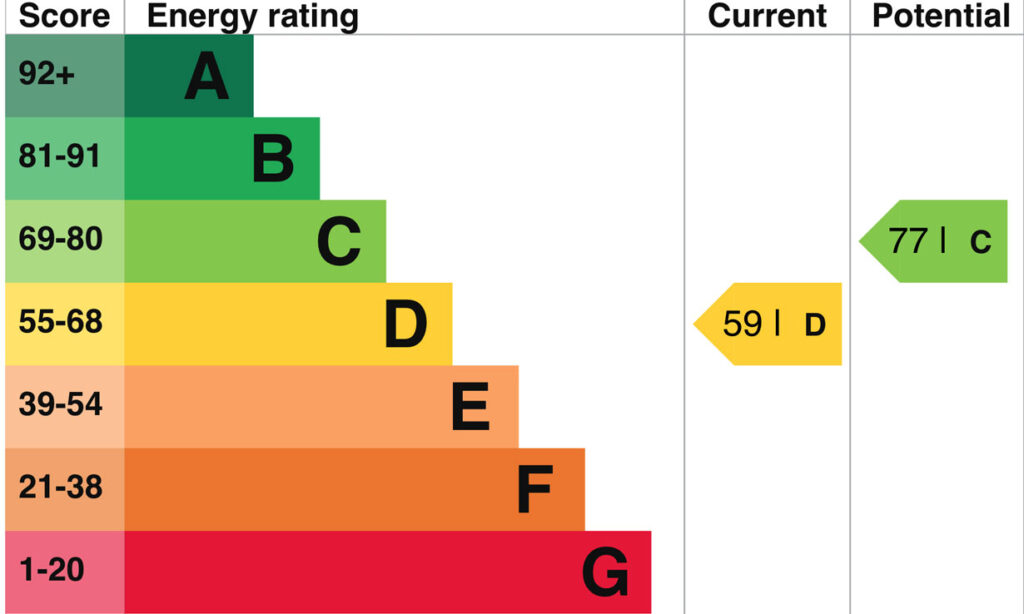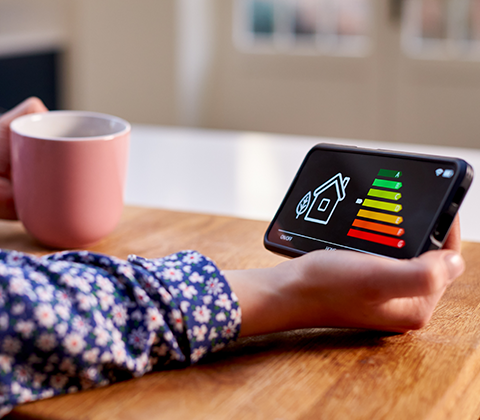With stricter guidelines requiring all rental properties to reach a rating of C or above by 2025, and stricter guidance likely in the years after, one method of offsetting the cost of the required work is to boost the value of your portfolio using eco improvements.
According to a government consultation in 2021, almost two thirds of private rental stock had an EPC rating of D or below, meaning that many landlords face estimated costs of between £17,00 and £27,000 to raise the efficiency rating of their properties to the minimum allowable standard. As a result, it will involve some smart work from landlords to mitigate bills it could take two or three years to cover.
What the report says
The report is largely targeted at the owner-occupier market, but the majority of the eco-improvements remain valid for landlords. The section of the report in question lists the average “perceived value increase UK homebuyers would attribute to each of the eco improvements” following a “nationwide survey [of] 2,000 UK-based homeowners and residents”.
We’ve taken this a step further by sourcing the approximate average cost of each of these improvements and their potential EPC impact to allow a better overall judgement of the improvements a landlord could make prior to the tightening regulations. What should be noted, however, is that there needs to be work undertaken by central government to update how scores are calculated – as a recent article from Which? states – EPC ratings currently favour gas heating as the unit cost of gas has historically been lower, something which has closed since the lifting of price caps.
The below table excludes the garden improvement, appliance replacement and electric charging point improvements mentioned in the report as they don’t impact EPC ratings.
| Improvement | Value Increase | Approx. Cost | Benefit (minus) | Potential EPC Impact |
|---|---|---|---|---|
| Solar panels | £13,512 | £3,000 – £8,000 | £5,000 – £10,000 | Can add up to 15 points – the equivalent of moving from an E to a D rating. |
| Wind turbine | £12,941 | £7,000 – £10,000 | £2,000 – £5,000 | Can add upwards of 10 points depending on size. |
| Triple glazing | £12,788 | £2,000 – £7,000 | £5,000 – £10,000 | Can add between 5 and 10 points – the equivalent of moving from a mid E to a low D rating. |
| Underfloor heating | £12,290 | £4,000 – £10,000 | £2,000 – £7,000 | Negligible. |
| Ground source heat pump | £12,251 | £13,000-£35,000 | (£1,000) – (£23,000) | Can be negative due to current imbalance between gas and electricity point allocation. |
| Double glazing | £12,005 | £3,000 – £8,000 | £4,000 – £9,000 | As with triple glazing, may add between 5 and 10 points. |
| Extra insulation, like cavity wall insulation | £11,764 | £6,000 – £10,000 | £2,000 – £6,000 | Depending on existing insulation, addition of cavity and loft insulation can add up to 30 points. |
| Biomass boiler | £11,756 | £5,000 – £12,000 | £0 – £7,000 | While being more eco-friendly than many oil or LPG boilers that are used in their place, EPC reports are behind the times where biomass is concerned, meaning it could lead to a reduced score. |
| Air source heat pump | £11,670 | £6,000 – £12,000 | £0 – £6,000 | Despite being anywhere between 8% and 70% cheaper to run than electric, gas and oil alternatives, outdated scoring systems currently make this efficient heat source a negative for EPC purposes. |
| Solar water heating | £11,646 | £3000 – £6000 | £6,000 – £9,000 | Will improve EPC score by between 3 and 6 points for bands E and above. |
| Green/living roof | £11,477 | £7500 – £13000 | (£1,000) – £4,000 | Will often represent a similar increase to loft insulation and, therefore, an uplift of up to 20 points. |
| Draught proofing | £11,151 | £200 – £1200 | £10,000 – £11,000 | While we think the uplift in value is likely an artefact of a poorly phrased survey question, draught proofing can add a point to your EPC score. A change of lighting (bulbs etc.) can provide another cheap to achieve point. |
As we can see from this, the biggest gains are likely to be the addition of renewable energy sources, triple glazing and insulation – all of which combined would cost a maximum of £35,000, could improve property value by up to £50,000 and improve the EPC score of a property by up to 65 points, the equivalent of an E – A improvement.
EPC point tiers

What this means for Wirral landlords
While it’s unlikely that value improvements would be directly cumulative, it is similarly unlikely that most landlords would need to perform all upgrades to achieve the maximum 30 points they’d need to go from a low C to a low E. As such, the best approach is likely to be to have the property reviewed (unless you’ve already done so in the last few years) and to pick and choose the improvements most likely to deliver a return on investment and deliver the required points increase.
One thing to remember, in addition to the EPC uplift of such improvements, is the possible increase in rental yield that an efficient property can provide. For the next few years, landlords that can act quickly will be offering huge savings in energy bills versus similar properties on the market, and that can come with a premium that will help to recover the costs.
If you’d like some help to keep up to date with changing legislation and regulation, you can Contact Us to see what we can do to help take the stress out of managing your portfolio.









